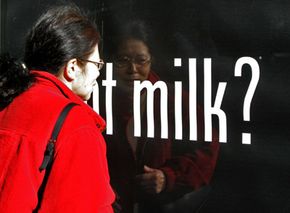The next time you go shopping or visit a hotel, pull yourself away from the auditory and visual barrage of ambient music and advertisements and take a good whiff of the air around you. You might notice a faint scent -- maybe the stimulating smell of jasmine at a boutique or relaxing lavender at a hotel. The smell will be barely perceptible: something you wouldn't have noticed if you hadn't been paying close attention. But businesses are hoping these almost subliminal scents will draw you into a serene state -- prompting you to relax, buy more and, ideally, remember their brands.
Scent marketing is the latest frontier in an advertising landscape that has nearly exhausted the possibilities of auditory and visual marketing. The retailers, hotels and restaurants that contract with scent companies hope that distinctive, carefully considered smells will help amplify consumer spending, attract customers and create memorable brands. Some businesses even consider scents an integral part of their overall image, along with music, logos and décor.
Advertisement

Smell intrigues both marketers and scientists because it has the unusual ability to call up powerful memories instantaneously. Smell is perceived by olfactory receptor cells, neurons with knob-shaped tips called dendrites that bind to molecular odorants. When an odorant stimulates a receptor, the cell sends an electrical impulse to the olfactory bulb, where odorant patterns are interpreted as different smells. Because the olfactory bulb is part of the limbic system, the emotional center of the brain, smell is closely connected to the amygdala and hippocampus, structures that influence our behavior, mood and memory.
When you first perceive a scent, you connect it to an event, person or thing. When you smell the scent again, it often triggers memory in the form of a conditioned response. Sometimes this happens on a conscious level: The smell of the ocean might remind you of a particular vacation. But smell can also activate the subconscious and influence your mood. Instead of reminding you of specific details from the vacation, the ocean scent might make you feel content or happy.
Scent companies like ScentAir term this phenomenon the Proustian Effect, after the French author Marcel Proust. His novel "Remembrance of Things Past" was the first to explicitly link smell and memory. He wrote of the emotional power of smell in the form of madeleine cakes and their ability to call up images of childhood.
But because people associate different smells with different memories, scent marketing is an imprecise science: There's no guarantee that a scent has universal appeal. In the next section, we'll learn how companies use smells to attract business.
Advertisement


